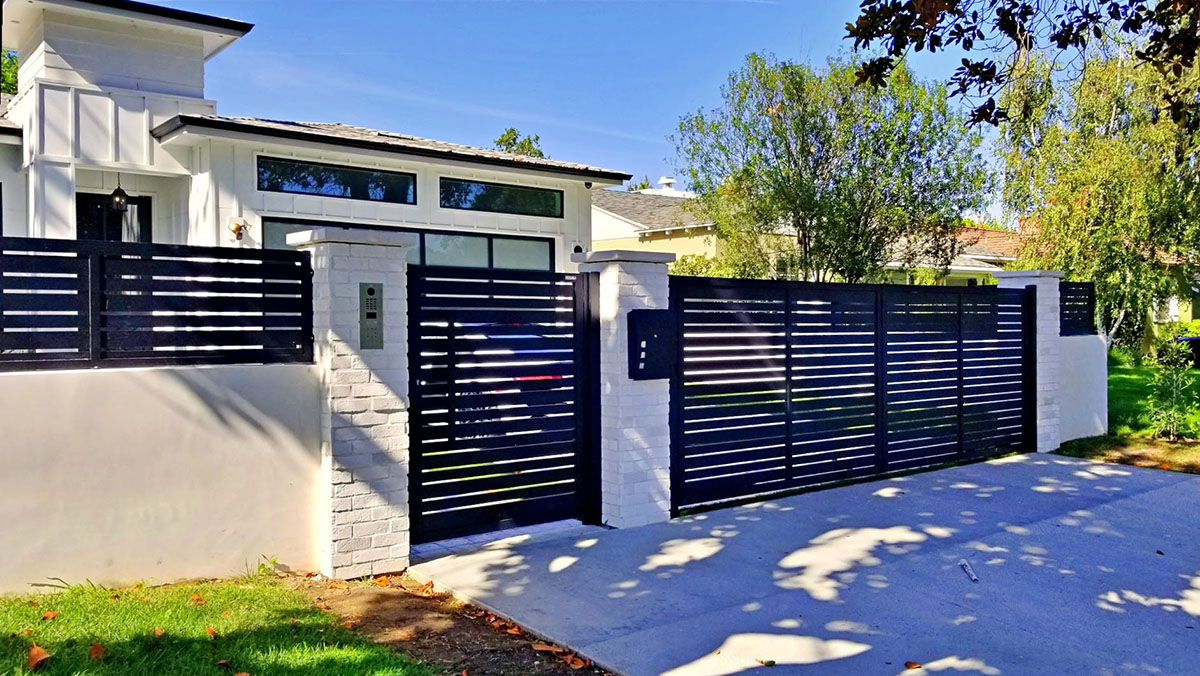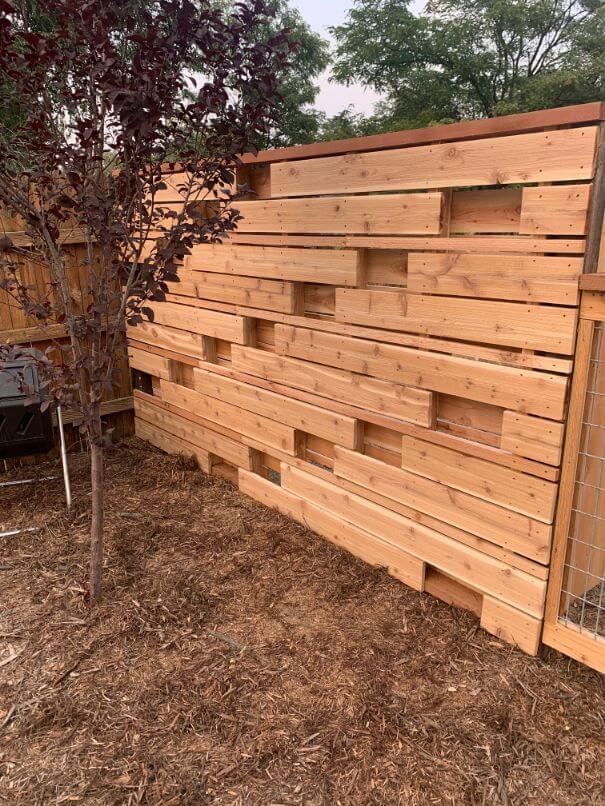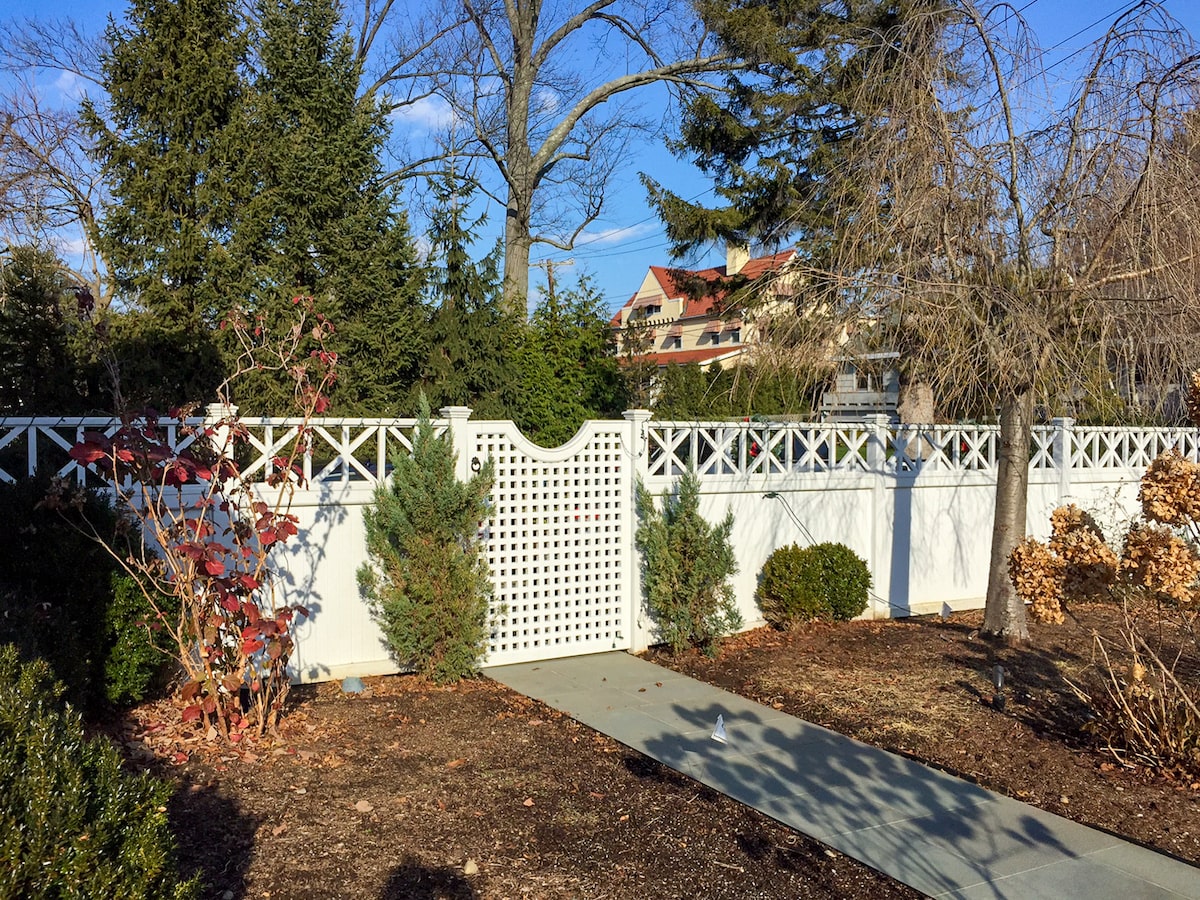Featured
Comprehending the license demands in your location is crucial if you're considering setting up a fence around your building. While constructing a fencing could appear like a straightforward DIY project, a number of guidelines may govern its construction depending upon where you live. Stopping working to obtain the correct licenses can result in penalties, fines, or even needing to remove the fence altogether. In this overview, we'll damage down the various permits you might need to install a fence and exactly how to guarantee your task stays compliant with regional regulations.
Why Are Allows Required for Fence Setup? Authorizations are called for to ensure that the fencing you build abide by regional building codes, zoning policies, and safety requirements. These authorizations are in area to protect your building, the homes around you, and the environment. They make certain that the fence will not obstruct energies, traffic circulation, or develop risks for pedestrians. Furthermore, they aid preserve the structural and aesthetic integrity of your area.
![]()
Sorts Of Permits You May Demand. Building License. A building permit is the most common demand for mounting a fencing. This permit guarantees that the framework you construct abide by regional security codes and laws. You may require to obtain a structure authorization if your fence exceeds a particular height (usually around 6 feet) The neighborhood authorities will normally assess your plans to guarantee that your fence is risk-free and structurally audio.
Zoning Authorization. Zoning laws regulate land usage in your location, and they frequently regulate where fences can be installed, in addition to how high they can be. A zoning permit makes sure that your fence adheres to these policies. Your fencing may need to be set back a certain range from walkways or home lines. Zoning policies can vary by neighborhood, so it's important to check the details guidelines that put on your area.
Homeowners Organization (HOA) Authorization. You may need authorization prior to installing a fencing if your property is part of a house owners association. HOAs commonly have stringent guidelines relating to the kind, style, and materials utilized for fencings to maintain an uniform look throughout the area. The HOA might need you to submit in-depth strategies or demand authorization before installment. Make certain you follow these standards to avoid possible fines or penalties.
Specialty Permits. In many cases, you might require specialty permits based on the area of your building or the nature of your fence. If your residential or commercial property is in a flood zone, you might need extra permits to guarantee that your fencing does not obstruct drainage or water circulation. Similarly, if you prepare to develop a fencing near an eco safeguarded area, you might need a special license to adhere to ecological policies.
![]()
Utility Easements and Energy Company Approvals. Before installing a fence, you should examine if your property has an easement. Constructing a fence within an easement might interfere with utility upkeep or damage underground lines.
How to Identify Which Permits You Required. Examine with Neighborhood Authorities. The primary step in figuring out the permits called for is to contact your regional structure division or zoning office. They can provide particular information about what authorizations are needed for your area. Many cities have on-line resources or sites where you can inspect the demands or also obtain a permit online.
Consult a Specialist Fence Professional. A regional fence service provider is usually aware of the permit procedure and local regulations. They can help you navigate the demands and ensure that your task is compliant. Many professionals also manage the license application procedure in your place, conserving you effort and time.
Testimonial Your Area's HOA Guidelines. If you reside in a neighborhood regulated by an HOA, make certain to evaluate their guidelines before using for any licenses. The HOA may require details styles, materials, or height constraints for fencings within the neighborhood. Send your strategies to them for authorization prior to proceeding.
![]()
Effects of Not Obtaining an Authorization. Setting up a fence without the needed permits can lead to major repercussions. Prospective buyers might wait to buy a property with an unpermitted fence, particularly if it's in infraction of zoning regulations.
Final thought. Before setting up a fencing on your property, ensure you understand the neighborhood laws and get any needed licenses. Building authorizations, zoning licenses, HOA approvals, and specialized allows all play a vital function in making sure that your fence is risk-free, legal, and compliant. Putting in the time to research study and safeguard the appropriate authorizations will save you from pricey mistakes and potential lawful issues in the future. Whether you're planning a personal privacy fence or an attractive boundary, following these actions will aid make the installation procedure smooth and easy.
Why Are Allows Required for Fence Setup? Authorizations are called for to ensure that the fencing you build abide by regional building codes, zoning policies, and safety requirements. These authorizations are in area to protect your building, the homes around you, and the environment. They make certain that the fence will not obstruct energies, traffic circulation, or develop risks for pedestrians. Furthermore, they aid preserve the structural and aesthetic integrity of your area.

Sorts Of Permits You May Demand. Building License. A building permit is the most common demand for mounting a fencing. This permit guarantees that the framework you construct abide by regional security codes and laws. You may require to obtain a structure authorization if your fence exceeds a particular height (usually around 6 feet) The neighborhood authorities will normally assess your plans to guarantee that your fence is risk-free and structurally audio.
Zoning Authorization. Zoning laws regulate land usage in your location, and they frequently regulate where fences can be installed, in addition to how high they can be. A zoning permit makes sure that your fence adheres to these policies. Your fencing may need to be set back a certain range from walkways or home lines. Zoning policies can vary by neighborhood, so it's important to check the details guidelines that put on your area.
Homeowners Organization (HOA) Authorization. You may need authorization prior to installing a fencing if your property is part of a house owners association. HOAs commonly have stringent guidelines relating to the kind, style, and materials utilized for fencings to maintain an uniform look throughout the area. The HOA might need you to submit in-depth strategies or demand authorization before installment. Make certain you follow these standards to avoid possible fines or penalties.
Specialty Permits. In many cases, you might require specialty permits based on the area of your building or the nature of your fence. If your residential or commercial property is in a flood zone, you might need extra permits to guarantee that your fencing does not obstruct drainage or water circulation. Similarly, if you prepare to develop a fencing near an eco safeguarded area, you might need a special license to adhere to ecological policies.

Utility Easements and Energy Company Approvals. Before installing a fence, you should examine if your property has an easement. Constructing a fence within an easement might interfere with utility upkeep or damage underground lines.
How to Identify Which Permits You Required. Examine with Neighborhood Authorities. The primary step in figuring out the permits called for is to contact your regional structure division or zoning office. They can provide particular information about what authorizations are needed for your area. Many cities have on-line resources or sites where you can inspect the demands or also obtain a permit online.
Consult a Specialist Fence Professional. A regional fence service provider is usually aware of the permit procedure and local regulations. They can help you navigate the demands and ensure that your task is compliant. Many professionals also manage the license application procedure in your place, conserving you effort and time.
Testimonial Your Area's HOA Guidelines. If you reside in a neighborhood regulated by an HOA, make certain to evaluate their guidelines before using for any licenses. The HOA may require details styles, materials, or height constraints for fencings within the neighborhood. Send your strategies to them for authorization prior to proceeding.

Effects of Not Obtaining an Authorization. Setting up a fence without the needed permits can lead to major repercussions. Prospective buyers might wait to buy a property with an unpermitted fence, particularly if it's in infraction of zoning regulations.
Final thought. Before setting up a fencing on your property, ensure you understand the neighborhood laws and get any needed licenses. Building authorizations, zoning licenses, HOA approvals, and specialized allows all play a vital function in making sure that your fence is risk-free, legal, and compliant. Putting in the time to research study and safeguard the appropriate authorizations will save you from pricey mistakes and potential lawful issues in the future. Whether you're planning a personal privacy fence or an attractive boundary, following these actions will aid make the installation procedure smooth and easy.
Latest Posts
Open Exclusive Discounts with WyHy's Love My Debt Union Rewards
Published Apr 20, 25
1 min read
Full Circle Strategic Marketing - Achieve More with Our Trusted Agency for Success
Published Apr 20, 25
2 min read
Protect and Fashionable Automatic Gates for each Residential Or Commercial Property
Published Apr 20, 25
1 min read
More
Latest Posts
Open Exclusive Discounts with WyHy's Love My Debt Union Rewards
Published Apr 20, 25
1 min read
Full Circle Strategic Marketing - Achieve More with Our Trusted Agency for Success
Published Apr 20, 25
2 min read
Protect and Fashionable Automatic Gates for each Residential Or Commercial Property
Published Apr 20, 25
1 min read